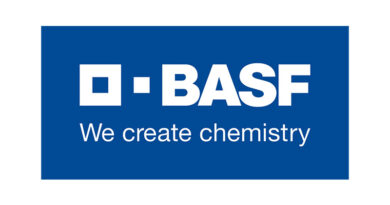ADM Announces Global Trends Set to Drive Nutrition Innovation for 2023
07 November 2022, US: ADM, a global leader in human and animal nutrition, unveiled today its third annual outlook on the global consumer trends that will shape the food, beverage and animal nutrition industries and drive market growth in the years ahead.
Dissecting the intersection of health and well-being, sustainability and food security, ADM has identified eight spaces that detail consumers’ evolving behaviors, attitudes and aspirations. The eight areas serve as anchor points to inspire innovation, ushering in a new wave of products and services for 2023.
“Often interconnected, these key themes are permeating throughout consumers’ choices, demands and expectations of brands,” said Brad Schwan, vice president of marketing for ADM. “The desire for a healthy mind, body and soul, as well as the global community and planet, is manifesting in proactive and decisive conscientious consumption across categories. As consumers look to prioritize what is most important to them, they want nutrition brands to do the same. Companies that can nimbly evolve alongside consumers are poised for success in the coming year and beyond.”
Below are the eight global consumer trends identified by ADM that are powering purposeful design and ingenuity for human, animal and pet nutrition and throughout supply chains.
Expanded Protein Choices
More than half (52%) of global consumers now consider themselves flexitarians, incorporating both animal-based and plant-based or other alternative proteins into their diet1. Within that 52%, nearly two-thirds are defining their eating style as “trying to use more plant-based foods,” leading to more demand for expanded protein options1. As technology natives Gen Z and Gen Alpha grow up, acceptance of applying scientific advancements to make our food will continue to become more commonplace, and practices like cellular agriculture, precision fermentation, hybrid products, and those with insect-based protein, are likely to flourish.
Balanced Wellness
Emotional, mental, physical, even spiritual health are increasingly seen by consumers as being intertwined, and as important as each other. Consumers are adopting a synergistic approach and making intentional and mindful choices about how they eat and spend their time to address energy levels, disease prevention and overall mood and feeling. Globally, 79% of consumers believe that supporting their mental health has a positive effect on their overall health and wellness1. Plus, 48% of global consumers plan to address their mental well-being over the next year, making the issue among their top concerns after immune function, digestive and heart health2.
Proactive Personalization
What works for one person’s wellness may not be ideal for another’s. A “one size fits all” strategy for health and eating has fallen away in favor of tailored, “better for me” approaches. In fact, 63% of global consumers say they are interested in food and drink products that are customized to meet their individual nutritional needs3. On top of that, 55% of global consumers say they are willing to spend more on functional foods that can support their health goals1. Additionally, these personalized solutions would ideally integrate into one’s lifestyle and take taste and culture preferences into consideration.
Trust and Traceability
From soil to table, consumers want to know where their food comes from, who made it and precisely what ingredients are included. They want to know how the product was produced and if the conditions of its production were humane. Some headway has been made in garnering consumer trust, with research showing that 42% of global consumers have become more trusting of environmental claims made by products and brands in the last two years4. This need for transparency is borne not only from food safety concerns but also from a desire for connection with the food and the communities that grow or make it. As such, consumers are looking to support companies they perceive as honest and authentic and that utilize technology like QR codes or blockchain to allow the traceability of products and ingredients to their origins.
Earth-Friendly Production
Globally, 49% of consumers claim to have changed their diet in the last two years to lead a more environmentally friendly lifestyle4. They’re also demanding a higher standard from the companies they purchase from regarding their environmentally conscious practices. Consumers are greatly focusing on reducing their own food waste4, and they will expect the same from the brands they support. Consumers want proof of environmental rebuilding and restoration, as well.
Social Impact
Using their voices and their purchasing power, consumers are demanding that companies practice fair and humane treatment of the people and animals involved in every aspect of production. Almost 30% of global consumers have actively boycotted a product or brand because of its ethical credentials, and 40% seek out brands that guarantee farmers have been treated in an ethical manner4. Ensuring workers’ and farmers’ livelihoods, employing inclusivity and diversity methods throughout the organization, and keeping products affordable and accessible to the end user are all important considerations to modern consumers when making purchasing decisions.
Modern Pet Parenting
For many, pets are part of the family, and their nutritional and emotional needs are being treated on par with their owners. In light of this, many pet parents require that their pets’ food be made from the same ingredients as their own. Plus, as consumers pay increased attention to the well-being of their pets, branded health ingredients are highly sought-after, with more than 60% of global cat and dog owners saying that branded health ingredients for their pets are important5. This increasing personification of pets is leading to a holistic approach to pet care, with mental well-being, gut health, exercise and diet considerations all being made in conjunction with one another.
Experiential Eating
Increasingly, global consumers are getting more adventurous with their food, as 74% express a desire to try new flavors from around the world and 63% report they like to be experimental when cooking6. While seeking out new and interesting flavor profiles, eaters also want to engage with fun and playful brands as part of the experience. If those brands can encourage participation through co-creation and virtual experiences, loyalty can be won with the sense of community it creates and the entertainment it provides.
From health and wellness for both people and their pets, to environmental considerations and elevated consumption occasions, these eight trend spaces present opportunities for innovative forward-thinking companies to meet the evolving needs of consumers today. ADM is at the forefront of each of these areas, supporting brands in creating novel offerings as a leading full-service supplier coupled with a deep pantry of ingredients and solutions, a global team of trend spotters, technical experts, scientists and more.
Also Read: Agriculture and the agricultural economy is the strength of India: Union Agriculture Minister
(For Latest Agriculture News & Updates, follow Krishak Jagat on Google News)















